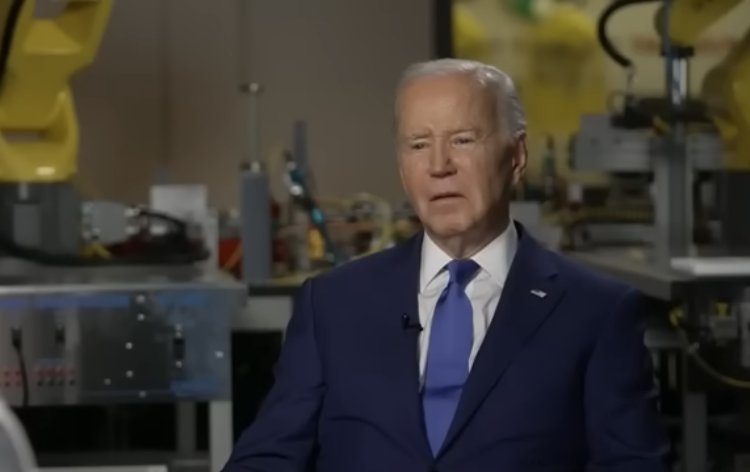Biden Got Asked 1 Tough Question in CNN Interview and Couldn't Handle It

If anyone still believed that President Joe Biden was competent in his role after witnessing his CNN interview on Wednesday, they are likely beyond persuasion.
Throughout the interview, which barely stretched beyond 15 minutes, the president exhibited his characteristic traits of dishonesty, forgetfulness, and confusion, struggling to provide coherent responses to even the most straightforward questions.
One query from interviewer Erin Burnett appeared to particularly irk Biden. She began by highlighting the economy's paramount importance to voters and the prevailing trust in presumptive GOP nominee Donald Trump's economic prowess, citing polls to support her statement.
Burnett proceeded to outline dismal economic indicators, pointing out that the cost of homeownership had doubled since the pre-pandemic era, real income had decreased, economic growth had fallen short of expectations, and consumer confidence had plummeted to near two-year lows.
Although Burnett refrained from citing specific figures, her assessment accurately captured the economy's dire state and the public's perception of it.
As reported by Realtor.com, home prices, including starter homes, have surged by as much as 271 percent in some regions since 2019, rendering homeownership increasingly unattainable. Concurrently, University of Michigan data, as cited by Trading Economics, indicates a decline in overall consumer confidence, dropping from 79.4 percent in March to 77.2 percent in April, with many expressing uncertainty about their financial futures. Federal Reserve Economic Data further reveals a decline in real median household income for the average American, plummeting by approximately $4,000 from 2019 to 2022.
In light of these stark realities, Burnett queried Biden on his concerns regarding the diminishing time frame to reverse the economic downturn before Election Day.
Momentarily caught off guard by the sobering facts, the president responded with a baseless assertion, claiming, "We've already turned it around," and rebuffing Burnett's inquiry as if it were unwarranted.
He cited the Michigan survey, alleging that 65 percent of Americans believed they were economically stable, dismissing the relevance of polling data in his rebuttal.
However, while some Americans may have weathered inflation relatively well, many others have resorted to multiple jobs, relocated to remote areas in pursuit of affordable housing, and revised their spending habits to navigate budget constraints.
These hardships are not merely anecdotal but supported by concrete data illustrating the tangible challenges faced by the average American.
The most significant change from pre- to post-pandemic times, notably, has been the ascension of Joseph Biden to the presidency.
While the pandemic undoubtedly strained the job market initially, the administration's significant increase in government spending, coupled with inflationary pressures, has exacerbated economic woes.
It's hardly surprising that Trump garners more trust than Biden on economic matters, given the former's track record of bolstering the economy.
Come November, the American electorate faces a clear choice between an incumbent president seemingly indifferent to their economic struggles and a former president renowned for his economic achievements.
Let's hope voters deliberate this choice with utmost care.